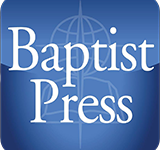
Christians in Hong Kong overwhelmingly support the mass protests that have disrupted the region for the last two months. Millions, including many Christians, have taken to the streets to protest a proposed extradition bill.
Hong Kong’s legal independence was a hallmark of the “one country, two systems” agreement made between Hong Kong’s former colony, Great Britain, and the People’s Republic of China in 1997. This principle allows Christians in Hong Kong to enjoy religious freedom. However, Hong Kong citizens fear that this extradition bill would give the Chinese government power to extradite Hong Kongers to mainland China at will, threatening Hong Kong’s freedom. “If this bill was enacted there would be a very high risk of undermining Hong Kong’s independent legal system,” said Wilson Leung, a lawyer working at a pro-democracy group in Hong Kong. Christians in mainland China have suffered brutal oppression under the Communist party’s relentless campaign against religion, and Christians in Hong Kong fear a similar fate awaits them.
On August 23, Hong Kong Christians held a rally to protest the government. They wore shirts bearing Christian crosses and the words “God bless Hong Kong.” They sang hymns, including “Sing Hallelujah to the Lord.” The rally was peaceful. People waved lights in the air and held hands in a mass chain stretching thirty miles across the city. Thousands of other non-Christian Hong Kongers joined the chain, which was meant to replicate the “Baltic Chain” formed almost three decades ago to protest the U.S.S.R. in Soviet-occupied territories.
“We fear that Christians in Hong Kong will suffer the same fate as Christians in mainland China,” a pastor at the rally said. “With our churches being burnt down, our leaders having to be approved, and our Bible being changed to suit Communist propaganda.”
One Catholic woman at the rally, her face covered with a mask to avoid facial recognition cameras, wore a necklace of the Virgin Mary. She held a copy of the rally’s manifesto, which called for “unity” between all Christians.
“We created a Telegram group for both Protestants and Catholics for the first time,” she said. “We didn’t really communicate until now, but we all stand together against this extradition bill.” Christians (around 480,000 Protestants and 390,000 Catholics) comprise 11.8 percent of Hong Kong’s population. Both Protestants and Catholics have united to oppose the government’s extradition bill.
China has issued a five-year plan to make Christianity more compatible with “Chinese values.” In mainland China, it is no longer possible to buy a copy of the Bible online, and existing copies are confiscated if unauthorized. Christians, Muslims, and Buddhists are expected to use only state-sanctioned versions of sacred texts, which have been edited to be compatible with Communist ideology.
“They have already canceled the First Commandment—I am the Lord thy God, thou shalt have no other gods before me—because it challenges the power of the Chinese President,” the pastor at the rally said. “What is at stake for us is really high.”
At a local Mass on the Sunday following the rally, a Hong Kong priest (who must remain anonymous) spoke against China’s investment in 5G technology, and urged instead for “spiritual investment.” During Mass, a prayer was said for “the victims of the extradition bill.”
“I fear the repercussions of an entire nation if my identity is revealed,” the priest said. “I also work with Christians in mainland China, so I have to be careful.” When asked what Christians in mainland China have said about practicing their faith, the priest said he couldn’t answer because he didn’t want to put their lives in jeopardy.
“The situation is very severe,” he said. “Just think about the fact that in many regions, Chinese people have never even heard about God or Jesus Christ. That’s how strong Communist propaganda is.”
When asked what he thinks about Pope Francis’s 2018 deal with the Chinese government regarding the appointment of Catholic bishops, the priest said: “As a Catholic, I have to agree with what the Pope decided for mainland China. But as Hong Konger, I hope the agreement will not extend to us.” Pope Francis has so far remained silent on the protests in Hong Kong.
Religious leaders support the protest, though they also urge both sides to end the violence. The Catholic apostolic administrator of Hong Kong, Cardinal John Tong Hon, and the chairman of the Protestant Hong Kong Christian Council, Rev. Dr. Eric So Shing-it, issued a joint statement on June 19 supporting the withdrawal of the extradition bill and an independent inquiry into police brutality. Other Christian leaders in Hong Kong also blamed the government for the protests. Archbishop Paul Kwong, Bishop Andrew Chan, and Bishop Timothy Kwok wrote an open letter that stated the government was “ignoring the real worries and fears among citizens.”
Today, Hong Kong has many crosses displayed on buildings, skyscrapers, and churches. Freedom of religion is protected under its Bill Of Rights. But should Hong Kong gradually lose its autonomy, the fate of people of faith will be uncertain.
Alessandra Bocchi is an Italian freelance journalist.
Photo courtesy of Alessandra Bocchi.
Become a fan of First Things on Facebook, subscribe to First Things via RSS, and follow First Things on Twitter.

